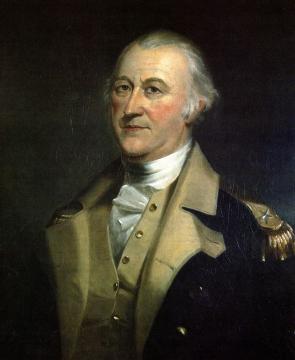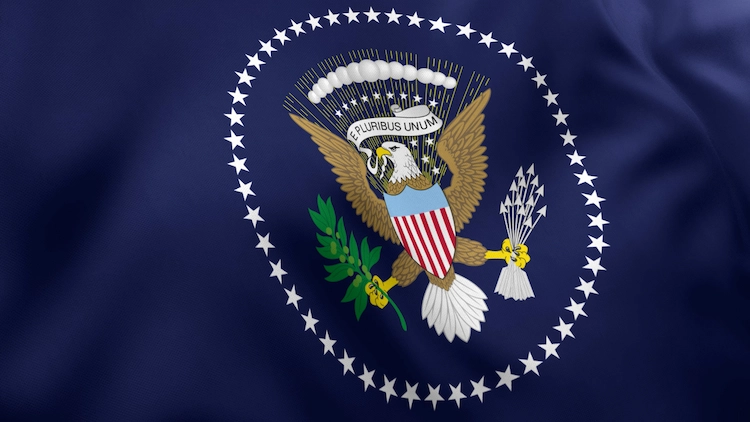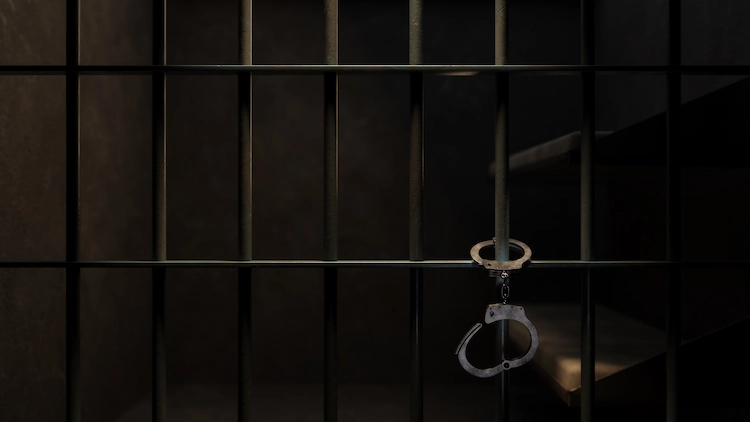
Artemas Ward served as a major general in the Continental Army during the Revolutionary War. He continued his public service as member of the U.S. House of Representatives.
Early Life
Artemas Ward was born on November 26, 1727, in Shrewsbury, Massachusetts. He graduated from Harvard University in 1748.
On July 31, 1750, Ward married Sarah Trowbridge. The couple would go on to have eight children. They also opened a successful general store in Ward’s hometown of Shrewsbury. Ward entered public service as a township assessor for Worcester County and later served as a justice of the peace.
During the French and Indian War, Ward rose to the level of lieutenant-colonel. Upon returning to Massachusetts, Ward was appointed colonel of his local militia regiment. In 1762, he became a judge of the Court of Common Pleas, where he served on the taxation committee alongside future Patriots Samuel Adams and John Hancock.
Revolutionary War
Ward was an increasingly vocal critic of the British, which resulted in the revocation of his military commission in 1767. By 1774, the British occupied Boston, and the Massachusetts Provincial Congress ordered each town to train a militia. One year later, Ward was named the commander of the state’s entire militia.
While Ward missed the battles of Lexington and Concord due to illness, he arrived in Cambridge the next day. He is credited with organizing the volunteer militia and establishing the fortification of Bunker Hill.
On June 17, 1775, the Continental Congress debated who should lead the newly formed Continental Army. According to John Adams, “the greatest number” believed that Ward deserved the position. Adams described Ward as “universally esteemed, beloved and confided in by his army and his country.” However, Congress ultimately chose George Washington of Virginia as a means to convince the South to unite with New England against the British.
While Ward was well-liked by his men, Washington did not believe he was a strong leader and openly criticized him. Ward continued to serve as the second-in-command, but the two men never formed a good relationship. In 1777, Ward’s declining health forced him to resign his position in the army and return home.
Political Career
In addition to his military service, Ward also held several public offices. In 1776 and 1777, Ward served as a Massachusetts state court justice. He went on to become President of the Massachusetts’s Executive Council, which effectively made him the state’s leader prior to the ratification of the Massachusetts Constitution in 1779. Ward also represented Massachusetts as a delegate to the Continental Congress in 1780 and 1781.
Ward served in the Massachusetts House of Representatives from 1779 through 1785. He was the House speaker in his last year in office. Ward was elected twice to the U.S. House of Representatives, holding office from 1791 to 1795.
Later Life
Ward died on October 28, 1800 at his home in Shrewsbury, Massachusetts. Because he wasn’t selected to lead the Continental Army and was criticized by Washington, many of his contributions to the early Revolutionary War are overlooked. However, as inscribed on a statute of him in Washington, D.C., he remains the first commander of the Patriot forces.








